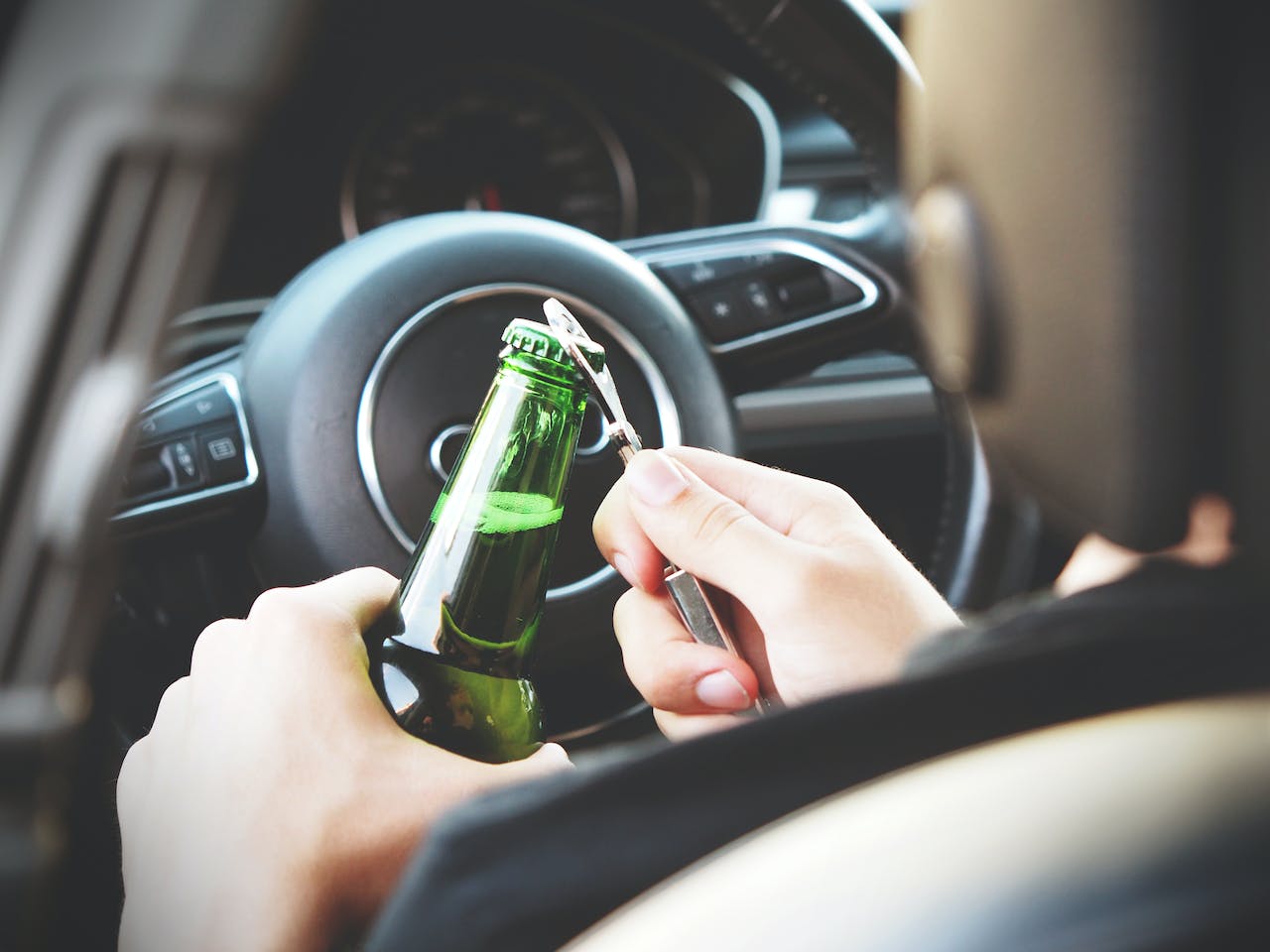|
|
Last Modified on Aug 22, 2025
Facing a DUI charge in California can be a daunting experience, especially for first-time DUI offenders. In California, a DUI conviction involves legal consequences for driving under the influence of alcohol or controlled substances.
Knowing your legal rights and defense strategies is important to your DUI defense. If you are encountering a DUI charge for the first time, there’s a spectrum of defense options that could lead to a more favorable outcome.
Criminal Defense Lawyer and former Alameda County Deputy District Attorney, Louis J. Goodman reassures that although challenging, handling a first-time DUI with the right approach can often result in positive resolutions. Schedule a free consultation with Attorney Goodman if you are facing a first-time DUI charge.
Overview of California DUI Laws
First-time offenders often face a unique set of challenges and opportunities within the legal framework. Knowing the basics of these laws not only helps in understanding the gravity of the charges but also in making informed decisions about the steps that follow a DUI arrest.
The implications of a DUI in California extend beyond simple legal penalties. They encompass a range of consequences that can impact various aspects of your life. The state imposes strict laws against driving under the influence of alcohol or drugs.
California DUI laws are designed to discourage drunk driving and ensure public safety. For offenders, this could mean facing hefty fines, potential jail time, license suspension, and mandatory participation in DUI education programs. Additionally, a DUI conviction can lead to long-term repercussions like increased insurance rates and challenges in certain employment opportunities. Thus, it’s imperative to grasp the full spectrum of these implications.
Everyone has the right to legal representation, and exploring defense strategies is key in these situations. This could involve challenging the accuracy of breath or blood tests, questioning the legality of the traffic stop, or other legal maneuvers depending on the specifics of the case.
Seeking the assistance of an experienced DUI defense attorney can significantly influence the outcome of your case. They can offer expert guidance on navigating the legal system, protecting your rights, and potentially mitigating the consequences of a DUI charge.

What are the BAC Levels in California?
In California, Blood Alcohol Concentration (BAC) levels are strictly regulated under DUI laws to maintain road safety. The BAC level is a key factor in determining whether a driver is legally considered to be driving under the influence.
These levels are set based on the percentage of alcohol in the bloodstream, and exceeding the legal limit can result in a DUI charge. Understanding these limits is essential for drivers, as it helps them make informed decisions about their alcohol consumption relative to driving.
The legal BAC limits in California vary depending on the driver’s age and the type of vehicle operated. For drivers aged 21 and over, the legal BAC limit is 0.08%. This means that a BAC reading at or above 0.08% can lead to a DUI charge for most drivers.
For commercial drivers, the limit is more stringent, set at 0.04%. Importantly, for drivers under the age of 21, any detectable amount of alcohol (a BAC of 0.01% or higher) can result in a DUI charge, reflecting California’s zero-tolerance policy for underage drinking and driving. Adhering to these BAC limits is critical for legal and personal safety while driving in California.
Possible Consequences of First-Time DUI Convictions in California
Legal Penalties and Fines
A first-time DUI offense in California is taken seriously and comes with substantial legal penalties. For a first-time DUI offender, the consequences typically include court costs and fines. These fines vary but can be significant, often starting from a minimum fine and escalating based on the specifics of the DUI charge.
Additionally, being charged with a DUI can lead to a statutory summary suspension of the driver’s license, usually for a period of six months. However, first-time offenders may be eligible for a restricted license, allowing limited driving privileges, such as commuting to work or DUI school.
The court may also mandate the installation of an ignition interlock device on the offender’s vehicle. This device requires the driver to perform a breath test for blood alcohol content before the vehicle can start. Furthermore, first-time DUI convictions often involve attending DUI school, which aims to educate offenders on the risks and consequences of drunk driving.
Jail Time and Community Service
Jail time is another potential consequence for a first DUI offense, although the length of time can vary. In many cases, the court may substitute jail time with community service, especially if the offense didn’t involve aggravating factors like causing an accident. However, the possibility of spending time in county jail, even for a short duration, remains a stark reality for first-time DUI offenders.
Impact on Criminal Record and Driving Record
A first-time DUI conviction also impacts the offender’s criminal record. This DUI offense becomes part of the permanent record, which can have long-term implications for employment, housing, and other areas of life where a criminal background check might be required.
The DUI arrest and conviction will also reflect on the individual’s driving record, potentially leading to increased insurance rates and scrutiny when applying for driving-related jobs.
How to Effectively Build a First-Time DUI Defense in California
A first-time DUI conviction in California can lead to a range of consequences, including fines, license suspension, potential jail time, mandatory educational programs, and the installation of an ignition interlock device.
It also results in lasting entries on both the criminal and driving records of the offender. For anyone facing a first-time DUI charge, consulting with a knowledgeable DUI lawyer is crucial to understand these implications fully and navigate the legal system effectively. Here are three steps you can take to build a strong case against a DUI charge in California.
I. Know Your Rights After a DUI Arrest
For anyone facing a DUI for the first time, understanding your rights after a drunk driving arrest is essential. When arrested, you have the right to remain silent and the right to an attorney.
These rights are crucial in protecting yourself during the initial stages of the criminal process. For instance, you are not obliged to provide incriminating information before consulting with your attorney.
Additionally, it’s important to be aware of the automatic license suspension that often follows a DUI arrest. Knowing these rights can influence your defense strategy, especially in understanding the nuances of DUI laws and the potential for a felony DUI or permanent criminal record.
II. Document the DUI Incident and Gather Evidence
Documenting every detail of the DUI incident and gathering evidence is a critical step in building a defense, especially for first-time offenders. This includes noting the circumstances of the traffic stop, the conduct of the police officer, and the procedures followed during the arrest.
If a blood test or any other chemical test was conducted, record the specifics. Documenting any signs of reckless driving or bodily injury, if applicable, is also important. This information can be crucial in challenging the prosecution’s narrative, particularly if your DUI lawyer aims to negotiate for a lesser offense or to mitigate severe penalties.
Hire an Experienced DUI Attorney
Hiring an experienced California DUI attorney is the most crucial step in building a defense against a first DUI conviction. A skilled DUI lawyer understands the complexities of impaired driving convictions, state laws, and the nuances of handling a case involving a first-time offense.
An attorney can provide guidance on dealing with the insurance company, the possibility of a suspended license, or the potential of a jail sentence. They can also navigate the intricacies of a criminal trial, plea negotiations, and the process of seeking a restricted driving permit or challenging an automatic year license suspension.

The Role of a Defense Attorney in a First-Time DUI Case
Legal Representation and Advocacy
A DUI attorney provides essential legal representation and advocacy for individuals charged with driving under the influence. This role is particularly crucial for first-time DUI offenders who may be unfamiliar with the legal system.
The attorney navigates the complexities of DUI laws, representing the client in court and at DMV hearings. They advocate for the client’s rights, aiming to achieve the best possible outcome.
Whether it’s arguing against a driver’s license suspension, negotiating reduced charges, or representing a client in court, the DUI lawyer is a key player in the legal process.
Analysis and Challenge of Evidence
One of the primary roles of a DUI attorney is to analyze and challenge the evidence presented in a DUI case. This includes scrutinizing the results and procedures of breath tests, blood tests, and field sobriety tests.
The attorney assesses the accuracy and legality of these tests and may contest them if there are indications of errors or procedural violations. This aspect is vital in DUI defense, especially when the evidence forms the basis of the DUI charge.
Development of Defense Strategy
Developing a defense strategy tailored to the specifics of the DUI case is another critical role of a DUI attorney. This strategy may involve challenging the legality of the traffic stop, questioning the officer’s conduct, or presenting alternative explanations for the DUI offense.
For first-time DUI offenders, the attorney might seek to minimize the impact of the offense, potentially avoiding severe penalties like jail time or significant fines. The strategy could also involve negotiating for a reduced charge, like from a DUI to a lesser offense, or arguing for alternatives to jail time, such as community service or DUI school.
Guidance and Support
A DUI attorney also provides guidance and support throughout the DUI process. They help clients understand the legal implications of their DUI arrest, the potential consequences of a DUI conviction, and the various stages of the legal proceedings.
This support is invaluable, especially for those facing their first DUI offense. The attorney helps the client navigate the complexities of the DUI charge, offering advice on dealing with issues like license suspension, court costs, and the possibility of having an ignition interlock device installed.
Negotiation and Plea Bargaining
Engaging in negotiations and plea bargaining with the prosecution is another important role of a DUI attorney. In many DUI cases, especially for first-time offenders, there may be room for negotiating plea deals.
These negotiations might result in reduced charges, lesser penalties, or alternative sentencing options. An experienced DUI lawyer can effectively negotiate with the prosecution, leveraging their knowledge of DUI laws and court processes.
Generally speaking, the role of a DUI attorney encompasses legal representation, evidence analysis, defense strategy development, client guidance and support, and negotiation with the prosecution.
Charged With a First Time DUI in California? Contact Criminal Defense Lawyer, Louis J. Goodman
Facing a DUI charge in California can be overwhelming especially if it’s your first encounter with the law in such a context. California treats DUI offenses seriously. The DUI laws and policies emphasize the need for responsible driving to ensure public safety.
The law entitles you to a strong defense and the chance to present your case in the best possible light. This situation often calls for the expertise of a skilled DUI defense attorney. The right lawyer can make a significant difference in your case, working towards a resolution that may avoid jail time and minimize other potential penalties.
Louis J. Goodman is a former Alameda County Deputy District Attorney with over 30 years of experience in criminal law. He now serves as a criminal defense lawyer helping residents of Alameda County and the state of California with fair legal representation.
If you’re facing a first-time DUI in California, consider scheduling a free consultation with Louis J. Goodman to explore your options and start building a strong defense.
5 Frequently Asked Questions about First-Time DUI in California
What are the legal blood alcohol concentration (BAC) limits for a first-time DUI offense?
For a first-time DUI offense in California, the legal BAC limits are 0.08% for drivers aged 21 and over, 0.04% for commercial drivers, and 0.01% for drivers under 21. Exceeding these limits can lead to a drunk driving arrest and charges under DUI laws.
What are the potential legal consequences of a first-time DUI conviction?
Legal consequences of a first DUI conviction can include fines, jail time, a suspended license, and mandatory DUI education programs. The severity of penalties often depends on factors like the BAC level and the presence of aggravating circumstances, such as causing bodily injury. Additionally, a DUI conviction typically results in an automatic license suspension and could lead to a permanent criminal record.
Can a first-time DUI charge be dismissed or reduced to a lesser offense?
Yes, a first-time DUI charge can sometimes be dismissed or reduced to a lesser offense, especially with the help of a skilled DUI attorney. Factors influencing this include the strength of the evidence, any procedural errors during the arrest, and the defendant’s driving and criminal history. Plea bargaining may result in charges being reduced to reckless driving or another lesser offense.
How might a first-time DUI affect car insurance rates and driving privileges?
A first-time DUI typically results in higher car insurance rates, as insurance companies view DUI offenders as high-risk drivers. This can lead to increased premiums or even policy cancellation.
Regarding driving privileges, a DUI conviction often leads to a license suspension. However, first-time offenders may be eligible for a restricted driving permit, allowing them to drive under specific conditions during the suspension period.
What steps should one take immediately after being arrested for a first-time DUI?
After a DUI arrest, it’s important to remember your rights, including the right to remain silent and the right to an attorney. You should comply with the police officer but avoid self-incrimination.
Contact a DUI attorney as soon as possible for legal advice and representation. Document all details of the arrest and the events leading up to it, and prepare for your DMV hearing and court appearances. Acting promptly and responsibly can significantly affect the outcome of your DUI case.








